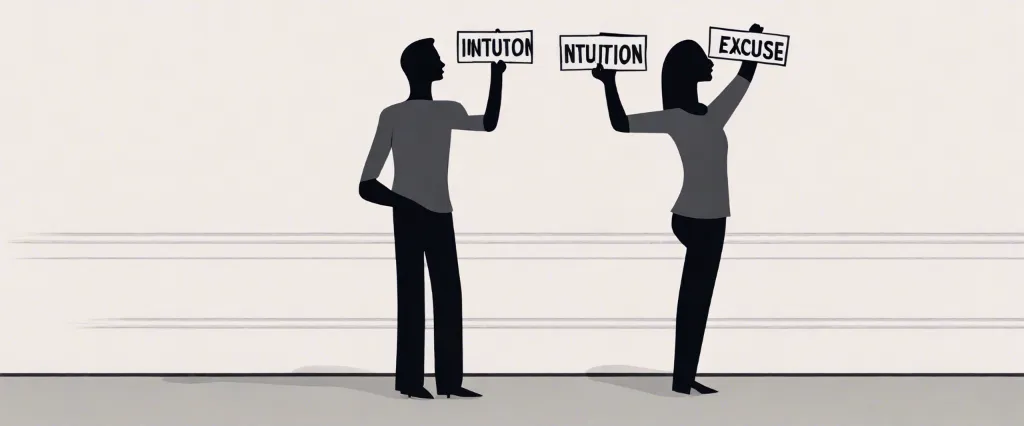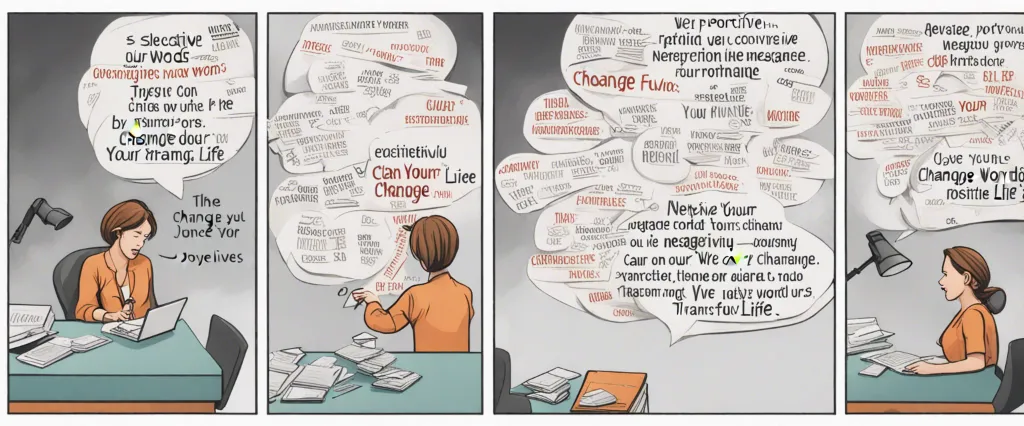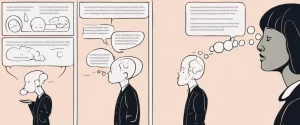——Excuses Begone by Wayne W Dyer & Change Your Words Change Your Life by Joyce Meyer

In the realm of personal development and self-improvement literature, countless authors have offered their insights and strategies to help individuals overcome obstacles and achieve true happiness. Among these authors, Wayne W Dyer and Joyce Meyer are celebrated figures, renowned for their profound wisdom and transformative teachings.
In this comparative study, we delve into two influential works that have captivated readers seeking meaningful change: “Excuses Begone” by Wayne W Dyer and “Change Your Words, Change Your Life” by Joyce Meyer. While both books aim to empower individuals to break free from self-limiting beliefs and embrace a more fulfilling life, they do so through distinct perspectives, approaches, and techniques.
Wayne W Dyer, a celebrated spiritual teacher and motivational speaker, has touched the lives of millions with his profound wisdom and unique blend of psychology and spirituality. In “Excuses Begone,” Dyer explores the power of excuses and how they hold individuals back from reaching their highest potential. By dissecting various excuses that commonly hinder personal growth, such as self-pity, blame, and the need for approval, Dyer equips readers with valuable insights and strategies to overcome these obstacles.
On the other hand, Joyce Meyer, a bestselling author and speaker, takes a slightly different approach in her book “Change Your Words, Change Your Life.” Meyer emphasizes the significance of our spoken words and their tremendous influence on our thoughts, emotions, and ultimately, our actions. Through compelling anecdotes and practical guidance, Meyer offers tools to transform negative speech patterns into affirmative and empowering ones. By doing so, she illuminates the path to renewed thinking patterns and a greater sense of self-worth.
While the ultimate goal of both Dyer and Meyer is to break free from the limitations that hold individuals back, they employ distinct methodologies to achieve this outcome. Dyer’s approach focuses on identifying, questioning, and challenging deeply ingrained beliefs, while Meyer emphasizes the power of positive affirmations and the intentional use of language. By examining these differing strategies, we gain a comprehensive understanding of the diverse approaches available to individuals seeking personal growth and transformation.
Exploring key themes, techniques, and underlying philosophies, this study aims to shed light on the unique contributions each author brings to the realm of self-improvement literature. Through an in-depth analysis of Dyer’s “Excuses Begone” and Meyer’s “Change Your Words, Change Your Life,” we seek to unveil their distinct strengths and help readers make informed decisions on which path aligns most closely with their personal journey toward self-actualization.
Brief Summary of Two Books
Excuses Begone by Wayne W Dyer
Excuses Begone by Wayne W. Dyer is a self-help book that aims to help individuals overcome the habitual patterns of making excuses and take control of their lives. The core message of the book is that by eliminating excuses, one can unlock their true potential and transform their mindset towards success and fulfillment.
The book starts by exploring various common excuses people make in different aspects of their lives – personal relationships, career, health, and more. Dyer emphasizes that excuses prevent us from taking responsibility for our actions and hinder personal growth. He argues that these excuses are often deeply ingrained and rooted in fear, inadequacy, or a lack of self-worth.
Through practical techniques and exercises, Dyer guides readers on a journey of self-discovery and self-empowerment. He presents multiple strategies to challenge and eliminate excuses, replacing them with positive affirmations, proactive thinking, and inspired action. These techniques include practicing self-awareness, questioning the validity of excuses, acknowledging the power of choice, and embracing a mindset of accountability and possibility.
Furthermore, Dyer delves into the power of intention and aligning oneself with universal energy to manifest desired outcomes. He encourages readers to let go of victimhood and adopt a mindset of personal responsibility and empowerment.
Throughout the book, Dyer provides numerous real-life examples, anecdotes, and success stories to illustrate the transformative power of removing excuses from one’s life. The book emphasizes the importance of changing one’s language, thoughts, and beliefs to create a positive shift in perspective and achieve personal goals.
Overall, Excuses Begone offers readers a roadmap to overcome self-imposed limitations, live a life free from excuses, and create a fulfilling and successful existence. It serves as a powerful tool for those seeking to break free from limiting beliefs and embrace their innate potential.
Change Your Words Change Your Life by Joyce Meyer
“Change Your Words, Change Your Life” by Joyce Meyer is a self-help book that explores the power of words and the impact they have on our everyday lives. Meyer delves into the importance of using positive and uplifting language to transform negative situations and create a more fulfilling life.
The book emphasizes the significant role our words play in shaping our thoughts, emotions, relationships, and overall well-being. Meyer explains how our words have the ability to either inspire or discourage, build up or tear down, and motivate or hinder progress. She explores the various ways in which negative words breed negativity, while positive words have the power to bring about positive changes.
Meyer provides practical advice on how to develop a habit of speaking positively and making conscious decisions to eliminate harmful words from our vocabulary. She offers personal anecdotes, biblical references, and practical exercises to help readers understand and implement the principles of positive communication in their daily lives.
The book also discusses the importance of speaking affirmations and declarations to overcome negative self-talk and replace it with empowering words. Meyer emphasizes the significance of being intentional and mindful of the language we use, not only when communicating with others but also when speaking to ourselves.
In “Change Your Words, Change Your Life,” Joyce Meyer guides readers on a journey to transform their lives by transforming their words. She encourages readers to take responsibility for their speech and seize the opportunity to use their words to positively impact their relationships, careers, health, and overall happiness.
Comparison between Two Books

Similarities in Positive Thinking
Both “Excuses Begone” by Wayne W. Dyer and “Change Your Words Change Your Life” by Joyce Meyer emphasize the power of positive thinking and its impact on one’s life. Here are some similarities between the two books in terms of positive thinking:
1. Shifting mindset: Both authors stress the importance of shifting one’s mindset from negative to positive. They advocate abandoning excuses and adopting a positive attitude as a way to overcome obstacles and achieve personal growth.
2. Language and affirmations: Both Dyer and Meyer emphasize the significance of the language we use and the thoughts we verbalize. They propose replacing negative self-talk and limiting beliefs with positive affirmations and empowering words to reshape our perception of ourselves and the world around us.
3. Personal responsibility: Both authors believe that individuals have the power to create their own reality through their thoughts and actions. They emphasize taking personal responsibility for one’s thoughts and behaviors and highlight how positive thinking can lead to a more fulfilling and successful life.
4. Mind-body connection: Dyer and Meyer acknowledge the mind-body connection and stress that positive thinking not only influences our mental state but can also have a positive impact on our physical health. They argue that by cultivating positive thoughts, we can reduce stress, boost our immune system, and improve overall well-being.
5. Focus on gratitude: Both books highlight the importance of gratitude in cultivating positive thinking. Dyer and Meyer encourage readers to appreciate the blessings and positive aspects of their lives, which can shift their focus from dwelling on problems to recognizing the abundance and joy already present.
6. Visualization and manifestation: Another common theme is the use of visualization techniques and manifestation principles as tools for positive thinking. Both authors suggest using the power of imagination to visualize desired outcomes, thus attracting positive experiences and opportunities.
Overall, “Excuses Begone” and “Change Your Words Change Your Life” share the belief that by adopting positive thinking, individuals can transform their lives, overcome challenges, and cultivate a more fulfilling and joyful existence.
Divergences in Positive Thinking
Excuses Begone by Wayne W Dyer and Change Your Words Change Your Life by Joyce Meyer are both self-help books that aim to help individuals improve their lives through positive thinking. While they share similarities in their overall message, there are some divergences in how they approach the concept of positive thinking.
In Excuses Begone, Wayne W Dyer emphasizes the idea that our thoughts create our reality. He argues that by eliminating excuses and negative thinking patterns, we can overcome obstacles and achieve success. Dyer encourages readers to take responsibility for their thoughts and actively choose more positive and empowering beliefs. He provides practical advice and exercises to help individuals challenge their excuses and shift their mindset towards personal transformation.
On the other hand, Change Your Words Change Your Life by Joyce Meyer specifically focuses on the power of words in shaping our thoughts and experiences. Meyer suggests that our words have the ability to build up or tear down, and that by speaking positive affirmations and declarations, we can change our mindset and ultimately change our lives. She emphasizes the importance of being aware of our words, avoiding negative self-talk, and instead replacing it with uplifting and encouraging speech.
The divergence in the approach to positive thinking between these two books lies in the emphasis on either thoughts or words. Dyer primarily focuses on shifting one’s thoughts and beliefs as a means to bring about positive change, while Meyer stresses the importance of choosing uplifting words and vigorously monitoring one’s speech. Both authors acknowledge the connection between thoughts, words, and actions, but they place varying degrees of emphasis on the conduit through which positive change is channeled.
In conclusion, Excuses Begone and Change Your Words Change Your Life share the common goal of promoting positive thinking for personal growth and success. However, they diverge in terms of the primary component they emphasize, either thoughts or words, as the catalyst for change. Ultimately, both books provide valuable insights and techniques for adopting a positive mindset, but readers may resonate more with one approach over the other based on their personal inclination or the aspect of positive thinking they find most influential.

Conclusion
Both Excuses Begone by Wayne W Dyer and Change Your Words, Change Your Life by Joyce Meyer are highly recommended self-help books that offer valuable insights and practical advice for personal growth. However, the choice between the two ultimately depends on your personal preferences, specific needs, and the areas of your life you wish to work on.
Excuses Begone focuses on identifying and eliminating the self-limiting beliefs and excuses that hold us back from achieving our goals and living a fulfilling life. Wayne W Dyer provides practical strategies and exercises to overcome these excuses and cultivate a mindset of success and empowerment.
On the other hand, Change Your Words, Change Your Life emphasizes the power of our words and how they impact our thoughts, emotions, and relationships. Joyce Meyer offers guidance on developing a positive and uplifting vocabulary that can transform our attitude, shape our reality, and strengthen our faith.
If you find yourself struggling with persistent excuses and a negative mindset, Excuses Begone may be the more suitable book for you. It offers a step-by-step approach to overcoming self-sabotaging habits and replacing them with productive and empowering thoughts.
If you feel that your language and communication style could use improvement, and you want to learn how to speak life-giving words into your circumstances, Change Your Words, Change Your Life might be the better choice. It focuses on transforming your vocabulary to promote positive thinking, increase self-confidence, and build healthier relationships.
Ultimately, both books have valuable insights and can bring positive changes to your life. Consider your specific needs and desires when making a choice between the two. If you resonate with the concept of eliminating excuses, go for Excuses Begone, whereas if you feel the power of words is where you need to focus, opt for Change Your Words, Change Your Life.


